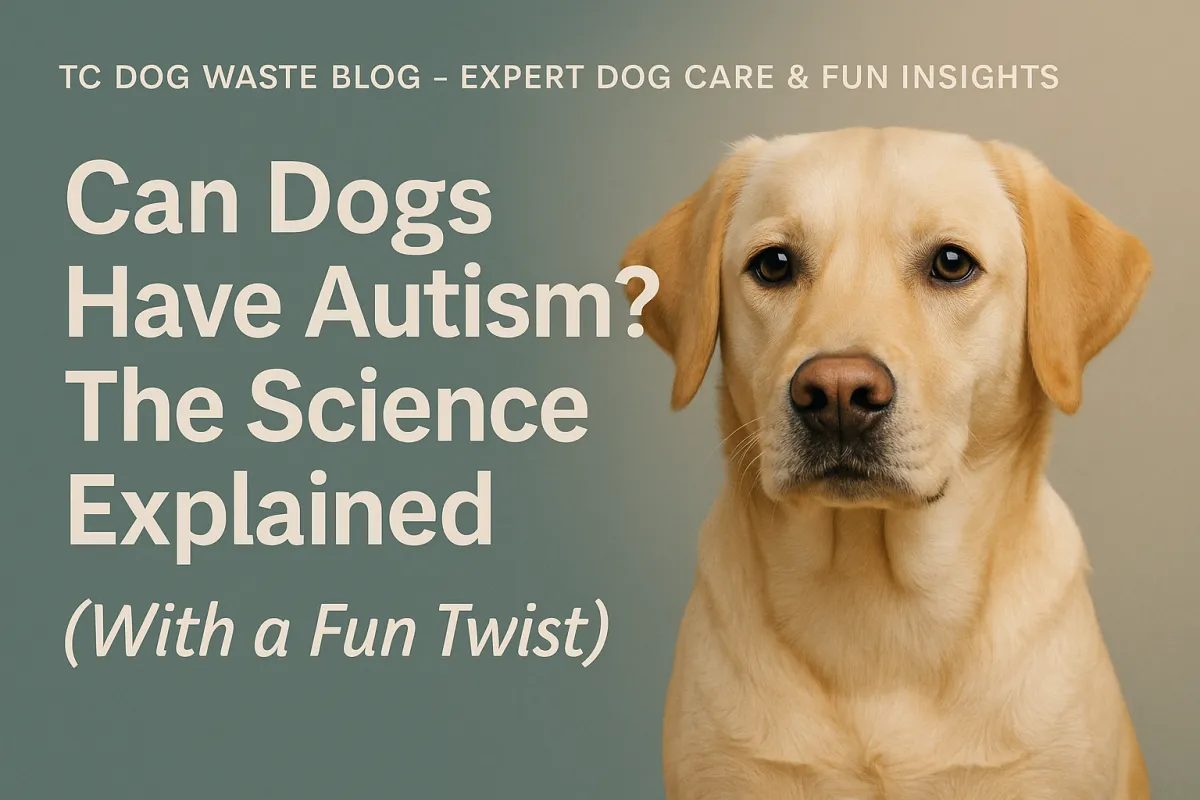
Can Dogs Have Autism? The Science Explained
Can Dogs Have Autism? The Science Explained (With a Fun Twist)
Dogs are often described as man’s best friend—but sometimes their behaviors leave us scratching our heads. From repetitive tail chasing to extreme shyness, some owners wonder: “Can my dog have autism?” Let’s dig into the science, clear up misconceptions, and sprinkle in a little fun along the way.
What Do We Mean by “Autism” in Dogs?
Autism in humans is a developmental condition marked by challenges with social interaction, repetitive behaviors, and unique sensory responses. But here’s the key: veterinarians don’t officially diagnose autism in dogs. Instead, they talk about “canine dysfunctional behavior” (CDB), a term that covers patterns of behavior similar to autism-like traits in people【source: American Kennel Club, 2023】.
The Science Behind It
Research shows that dogs can display unusual behaviors that may look like autism, but science stops short of calling it the same thing.
Neurological parallels: Studies suggest that some dogs show underdeveloped “mirror neurons,” which may affect their ability to read social cues【source: Veterinary Medicine International, 2015】.
Repetitive behaviors: Spinning, tail chasing, or compulsive pacing can be signs of canine compulsive disorder (CCD) rather than autism【source: ASPCA, 2024】.
Social withdrawal: Dogs who avoid other dogs or humans might be anxious, fearful, or genetically predisposed—not “autistic” in the clinical sense.
So while the comparison is tempting, it’s not medically accurate to say dogs “have autism.”
Why Do Some Dogs Show These Traits?
There are a few big factors:
Genetics – Certain breeds (like Bull Terriers) are more prone to repetitive behaviors.
Early environment – Lack of socialization during puppyhood can lead to lifelong quirks.
Health issues – Pain, neurological disorders, or thyroid problems may show up as strange behavior.
How to Help a Dog With “Autism-Like” Behaviors
If your pup shows these traits, don’t panic—there are positive steps you can take:
Veterinary check-up: Rule out medical causes.
Consistent routine: Dogs thrive on predictability.
Enrichment activities: Puzzle toys, agility games, and sniff walks reduce anxiety.
Professional help: A veterinary behaviorist can tailor strategies for your dog’s needs.
Fun Twist: The “Unique Personalities” Perspective
Instead of labeling dogs as “autistic,” many trainers say it’s better to think of them as having unique personalities. Just like humans, dogs come with quirks—some are the life of the party, and others prefer quiet nights in.
And honestly, isn’t that what makes them lovable?
Key Takeaway
Dogs can’t officially be diagnosed with autism, but they can show autism-like traits. Science suggests genetics, environment, and health conditions play a role. The best approach? Celebrate your dog’s quirks while supporting their needs with structure, love, and professional care when needed.
Sources
American Kennel Club (2023). “Can Dogs Have Autism?”
Veterinary Medicine International (2015). “Canine dysfunctional behavior research.”
ASPCA (2024). “Compulsive Behaviors in Dogs.”
